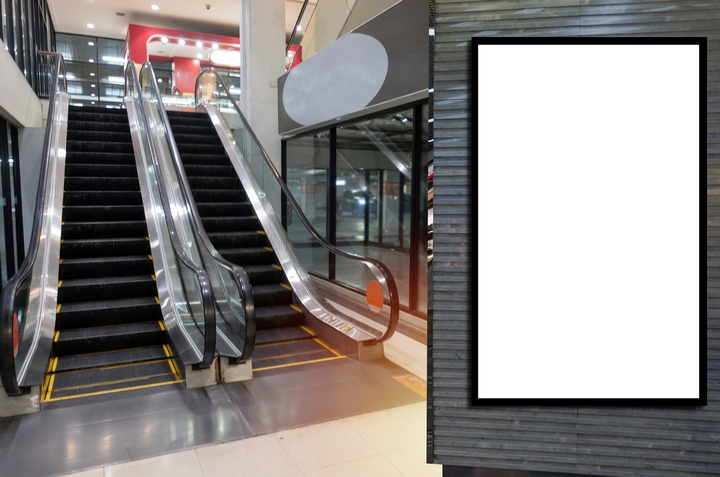So, when was the last time you visited a shopping mall? Perhaps Black Friday or Boxing Day. Either way, thanks to the prevalence of online shopping, visiting a shopping centre becomes less necessary. You can get everything you want online, from diamond jewelry to a pair of shoes. Why leave the house, spend money on gas (or transit), and deal with obnoxious and uncouth folks? It is a futile endeavour.
Does this mean that the shopping mall will die soon? Well, for one thing, rumours of its death have been greatly exaggerated. The shopping mall may not be popular among previous mallrats, but it will still have a long life for the foreseeable future. In fact, destinations like the Newmarket Shopping Mall are still as popular as ever.
What is certain about the future of shopping malls is that it will evolve in the next decade. Here are seven predicted trends that will dictate the future of shopping malls:
1. Shopping malls will have mixed-use space in the future
 You are already beginning to see shopping malls across the United States that are mixed space. Some shopping malls are a mix of retail, housing, and commercial. Some others integrate medical offices, homeless shelters, and parking spots into the space. There are many possibilities.
You are already beginning to see shopping malls across the United States that are mixed space. Some shopping malls are a mix of retail, housing, and commercial. Some others integrate medical offices, homeless shelters, and parking spots into the space. There are many possibilities.
Put simply, the future of the shopping mall will be a concoction of all these different industries and comprised of varying needs. Who knows? Perhaps the idea of a shopping mall will be more like an incubator or a complex.
2. Shopping malls will have more ecommerce integration
 Many stores inside shopping malls are essentially an extension of their online investments. A lot of companies, knowing that their real success will be their digital infrastructure, will either erect pop-up shops or will encourage more internet adoption for their products or services.
Many stores inside shopping malls are essentially an extension of their online investments. A lot of companies, knowing that their real success will be their digital infrastructure, will either erect pop-up shops or will encourage more internet adoption for their products or services.
It is a wise investment, particularly for businesses that want to have their digital footprint and physical marking simultaneously. The future of shopping malls will see more stores and plazas integrate e-commerce into their business outlets.
3. Shopping will be an experience
 How boring is your local shopping mall? Chances are, they have failed to evolve and they all share the same architectural designs and retail stores. Seriously, how many Forever 21 stores do you need in the marketplace? Whether it is clothing or electronics, the online store is becoming a far more attractive venue for buying these goods.
How boring is your local shopping mall? Chances are, they have failed to evolve and they all share the same architectural designs and retail stores. Seriously, how many Forever 21 stores do you need in the marketplace? Whether it is clothing or electronics, the online store is becoming a far more attractive venue for buying these goods.
Shopping malls may be realising that the best way to ensure shopping malls survive is by transforming the centre into an experience. From the moment you walk through the doors to time you exit the establishment, it is all about creating memories rather than buying a scarf or a DVD player.
4. There will be more niche malls
 Analysts will argue against the viability of niche shopping malls. They will present the case that a mall that specialises in one particular sector will not be enough to keep the doors open. This is true to a certain extent, but niche malls can be a combination of stores that sell certain goods and brands that want to advertise their goods or services at the mall.
Analysts will argue against the viability of niche shopping malls. They will present the case that a mall that specialises in one particular sector will not be enough to keep the doors open. This is true to a certain extent, but niche malls can be a combination of stores that sell certain goods and brands that want to advertise their goods or services at the mall.
Think of video games, for example. This is a multi-billion-dollar market comprised of dedicated consumers and plenty of consoles, games, and accessories. A lot of people, especially youth, would visit the mall any chance they would get.
5. Shopping malls will be a tech-powered space
 Imagine a fully automated shopping mall if you will. This could be the future of shopping malls without any human employees, except perhaps security. You have fully automated stores and checkout counters. A computer runs everything. It would be remarkable to witness such a creation. But why wouldn’t this happen to the shopping mall?
Imagine a fully automated shopping mall if you will. This could be the future of shopping malls without any human employees, except perhaps security. You have fully automated stores and checkout counters. A computer runs everything. It would be remarkable to witness such a creation. But why wouldn’t this happen to the shopping mall?
You are beginning to see more stores become fully tech-powered gradually. For instance, Amazon is opening up grocery stores that allow you to walk in and walk out without any face-to-face interaction. It is a huge development in retail and one that many other companies will inevitably implement in the years to come.
The trend might only begin with a handful of malls, but the number could eventually surge.
6. Online giants go offline
 Amazon certainly disrupted the retail industry and fostered an environment of transitioning shoppers to online shopping. Now that Jeff Bezos and his Amazon ecosystem have dominated the internet, the company is beginning an offline presence too. You could see this become the new norm for a whole host of businesses inside shopping malls, whether they are pop-ups or long-term properties.
Amazon certainly disrupted the retail industry and fostered an environment of transitioning shoppers to online shopping. Now that Jeff Bezos and his Amazon ecosystem have dominated the internet, the company is beginning an offline presence too. You could see this become the new norm for a whole host of businesses inside shopping malls, whether they are pop-ups or long-term properties.
7. Shopping malls could become wastelands

In the darkest timeline, the future of shopping malls could be wastelands that you find in dystopian films and books.
Eventually, everyone just stays home, buys online, and never leaves their home. This might seem like a possibility right now thanks to the rise of the coronavirus, but the concept of a shopping mall might not quite enter the dust bins of history just yet.
We will continue to shop – online or offline – until some magical machine produces things for us like on Star Trek.




